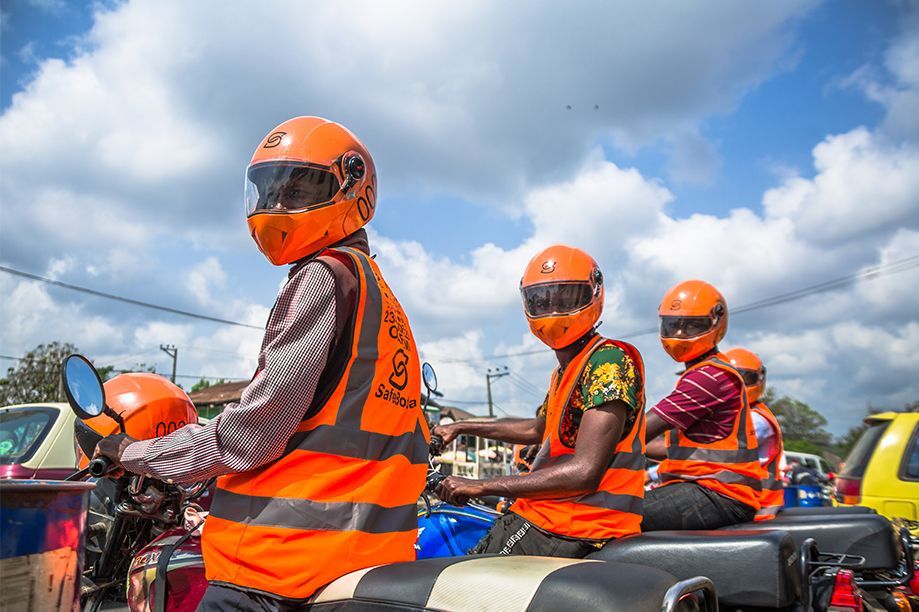SafeBoda loses about 170 million customers in Nigeria

Maybe SafeBoda didn’t have a master plan after all as it has halted its operations in Nigeria. The e-hailing startup was originally founded in 2017 when it began operations in Uganda. It would rapidly spread out its wings to Kenya (an East African market with booming tech potential) until it rushed out during the global pandemic like other startups owing to the “negative effects of COVID-19”.
In 2020, SafeBoda launched in Nigeria and chose an unusual location in Ibadan, whereas, most startup local founders and foreign investors prefer to dominate the acclaimed Silicon Valley of Nigeria — Lagos State. To his credit, ex-country manager, Babatunde Duroshola said of the population of the residents in the city coupled with the activeness of Okada a local term for motorcycles in Nigeria also known as BodaBoda in East Africa. “People ask why we decided to come to Ibadan and I reply, “Why not?”
“Ibadan is a city of 4.5 million people with almost 50, 000 active okadas. It is a city of firsts and its potential is in its people. It already has a thriving okada community and smartphone adoption is high. Also, it has a thriving middle-class bracket. The government is also willing to support it. The government was actively involved in the process of establishment. All issues that could be a disadvantage to our operations in Oyo State have been identified and sorted out! As a matter of fact, we were supposed to launch last year, in October, long before the Lagos okada ban but we waited to consult and make extensive market research,” Duroshola said.
The SafeBoda launch in the unpopular but perceived-to-thrive market came after a rigid ban on motorcycles by the Lagos State’s government in 2020. Motorcycles could only operate within neighbourhoods as a consequence of road accident risks and occupational hazards the riders face. Many of these Lagos riders had infiltrated Ibadan, a neighbouring city where locals and different social classes actively engage in utilising motorcycles for mobility.
Bike-Hailing Business Perils in Nigeria: Examining SafeBoda’s Masterplan
In only a year of operation, it gained half a million rides and would at the point of exit reach three million rides. It reached a million users in just two weeks after its launch in Nigeria. Managing to stand strong amidst competition with startups that have launched out previously in Lagos and elsewhere, SafeBoda was doing progressively well until it admitted that “its (Okada) current state is not economically viable and unfortunately requires significant investment at this challenging time in the global economic landscape.”
SafeBoda could have launched elsewhere but it principally maintained the Ibadan market and gained a feat. Even though Okada riders have complained — not only in Nigeria — about how they struggle to make profit by going digital, especially with surging commissions, other startups including Uber, Bolt, Max.ng, LittleRide etc have tested and deployed services in the motorcycle ride-hailing space.
In January of this year, Uber launched its bike-hailing service in Ibadan to compete with SafeBoda’s growing appetite despite the fact that the latter is still struggling in Uganda. The Ugandan motorcycle ride-hailing market faces scrutiny and unpleasant feedback from riders.
Uganda has a large market for BodaBoda riders with it being an employer of youths more than ever in the country, it still has a lesser population compared to Nigeria. SafeBoda will now direct the investment from the Google Africa Investment Fund prized at $1 billion to Uganda, its primary market. It is noteworthy that the transport and mobility tech company is the first recipient of the commitment by Google.
To further provide cashless solutions via its SafeBoda Wallet and achieve its SuperApp motive, it launched its car-hailing service in September with high optimism of deploying operations in Nigeria later, however, this is a dream unachievable.
With Uganda’s population nearing 49 million people, SafeBoda has lost its potential of gaining more than threefold its now-focused market against an over-200 million fortitude in Nigeria. Its continuous exit in countries across Africa means the startup needs to re-strategise properly. It may face strict regulatory issues if it decides to launch in other markets on the continent as its master plan may be connected to habitual exit plans.
SafeBoda launches new product to compete with existing ride-hailing companies
Bike-hailing business perils in Nigeria
Bike-Hailing Businesses Perils in Nigeria: Diversification as a Means to What End?